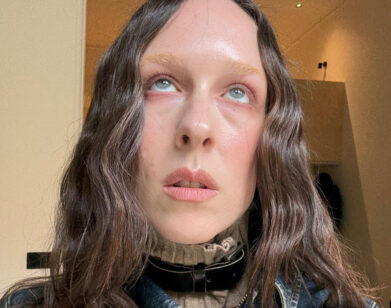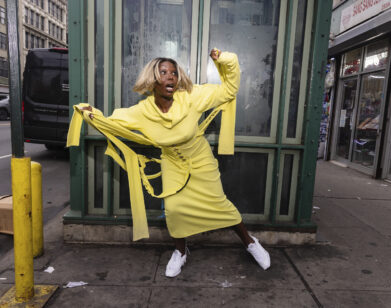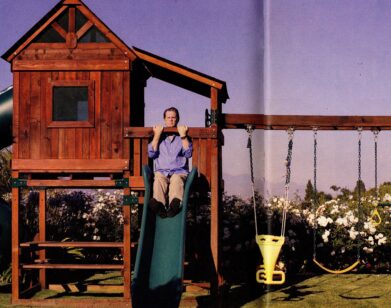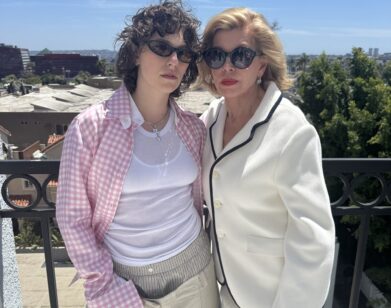King Princess Explains the Internet to Mark Ronson

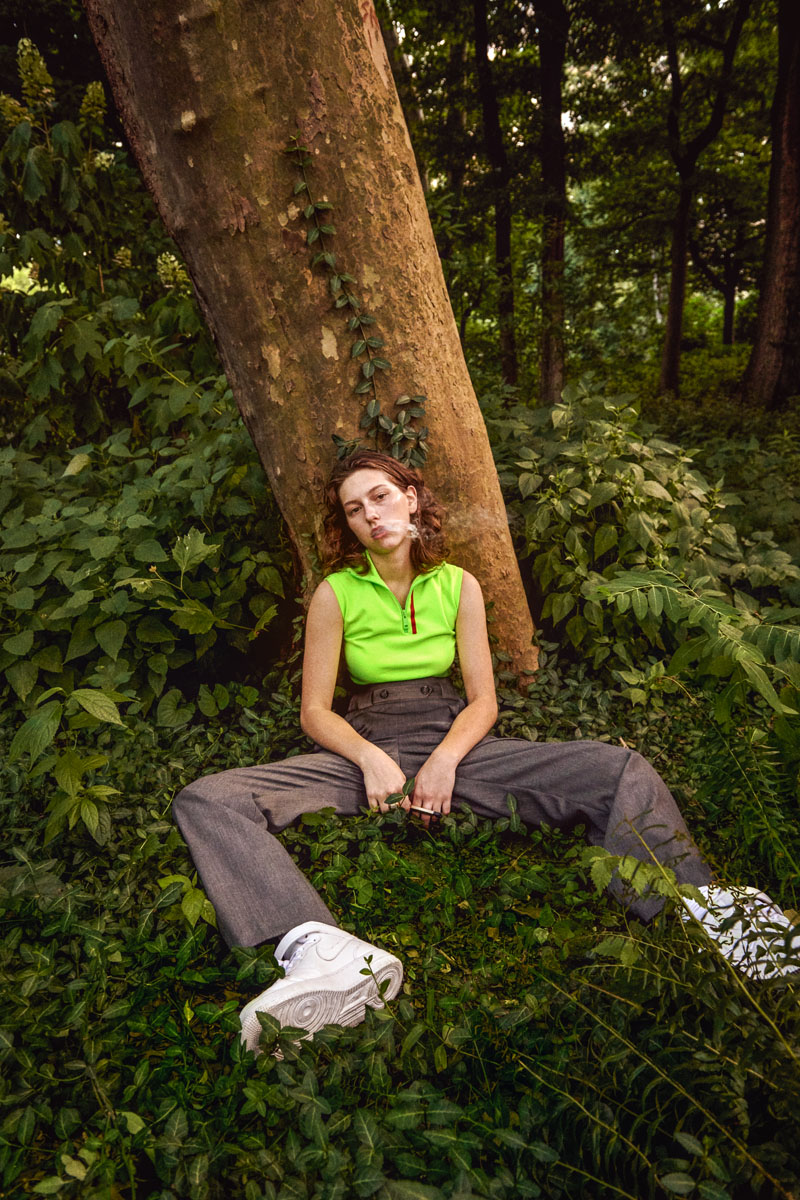
As her stage name implies, Mikaela Straus, otherwise known as King Princess, is a study in contradiction: a songwriter who mines the history of classic rock and a Twitter virtuoso fluent in the evolving language of now. On a break from recording her debut album, the 19-year-old took a few moments to explain the internet to her friend and collaborator Mark Ronson.
———
MARK RONSON: So, what’s “gak”?
KING PRINCESS: It’s the universal sound that the gays make at the club. I know this is a big concept, so I’ll try to keep it simple. Gak encompasses so many things, like, “Tonight is going to be a gak and a half.” If it’s going to be a “big gak,” it’s going to be major.
RONSON: I like it. What are some of your favorite words from the internet that I, as an older person, might not understand yet?
PRINCESS: Saying “doink” instead of “joint,” because that’s just hilarious.
RONSON: Do you have a least favorite?
PRINCESS: Excuse my profanity, but I think that Big Dick Energy has to be edited. I love the concept, but I don’t think we need to bring dicks into it. I’ve suggested that we flip it to Tight Pussy Energy.
RONSON: I remember when we were watching the season premiere of Game of Thrones, you weren’t impressed with the dicks on display in that show. Sometimes Game of Thrones has the opposite of Big Dick Energy. Would that mean it has—
PRINCESS: Tight Pussy Energy? No, because the opposite of Big Dick Energy is Small Dick Energy.
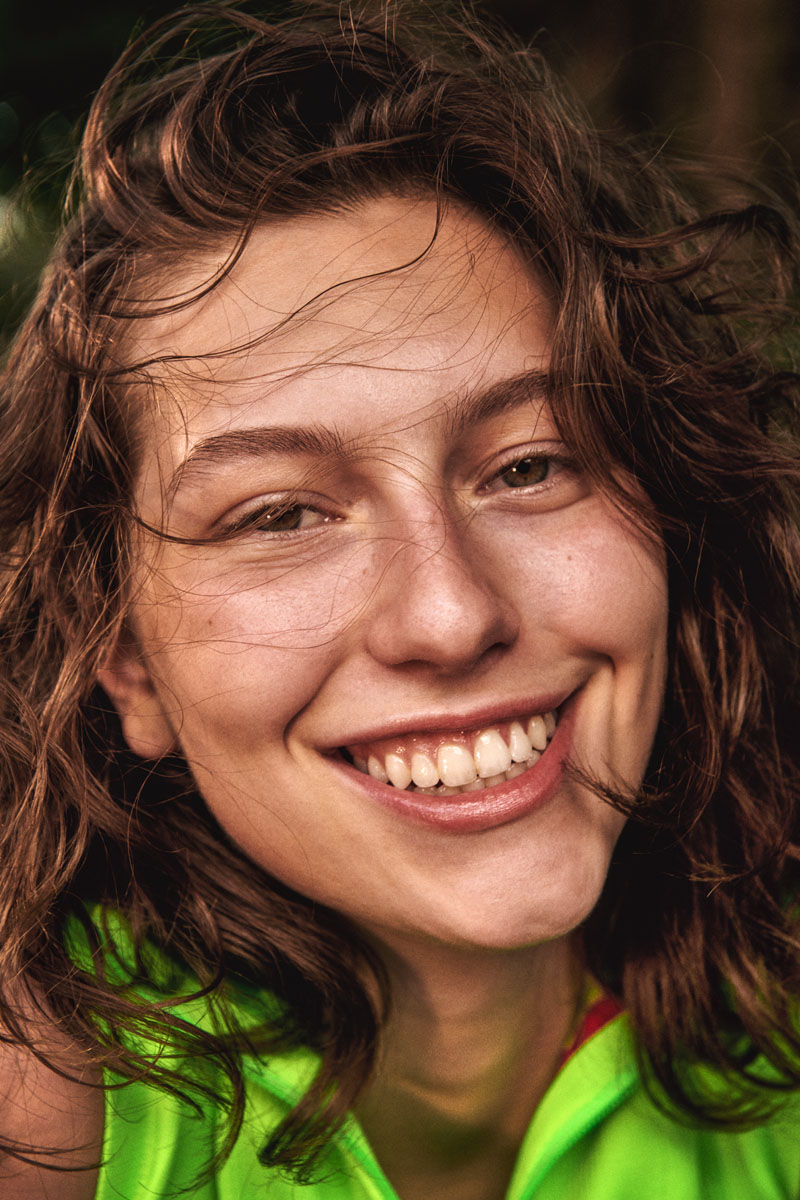
Top by Prada. Pants by Helmut Lang. Sneakers by Nike
RONSON: As a streaming star, what was the energy like being on tour and in front of your fans for the first time?
PRINCESS: I was really excited to talk to them and to feel their energy, to see these kids who have been fucking with my music since day one. Having a sold-out show takes a lot of the pressure off, because I know that it’s going to be a room full of people who are excited to be there. The worst part—or the part that I’m adjusting to—is the actual act of traveling. The hotels are pretty trash.
RONSON: Well, you will graduate to the Mariah Suite someday.
PRINCESS: I’m a bougie girl, so it’s hard for me.
RONSON: I heard that you got sick in Toronto.
PRINCESS: Yeah, I got strep throat. We stayed in this hotel that had some questionable stains all over it. I got really sick and I got this rock doctor human—have you ever had one of these rock doctor guys?
RONSON: I’ve seen them.
PRINCESS: Mine was on his way to an Eagles show in Toronto to give them all B-12 shots. The shot was fantastic, it was like crack.
“I think that being from New York is about being inundated with constant humiliation.” —KING PRINCESS
RONSON: Your music has a sense of classicness to it. Is that from being around an old recording studio with your dad and getting that Beatles songbook drilled into you?
PRINCESS: During the prime of my adolescence, there was so much trash music. It was super synthetic. Growing up with a dad who was a classic-rock guy, I felt out of place with what was happening in pop culture. The Beatles, Zeppelin, T. Rex—that for me was the music that could never leave our vocabulary.
RONSON: But then again, I remember when you and I went to see Lady Gaga together and you—
PRINCESS: I lost my shit! She’s the first pop star that I had really witnessed in that way. When I was younger, I would stay up and wait for her videos to drop. She was different—not afraid to be gross and funny and sexy, all at the same time. She championed the queers, like an extension of Madonna and Tina Turner and all these people who support the gay community without being a direct part of it. For me, she was the closest thing to having a gay icon. I smoked a whole joint before we saw her. I was belligerently high backstage, and there she was—there was this woman who helped me come out.
RONSON: Did you often feel ostracized growing up?
PRINCESS: I definitely spent a lot of high school isolating myself because I didn’t feel like I fit in. I learned how to be funny. I ended up watching a lot of shit that resonated with me, and I learned how to have a personality through that. I wasn’t a super nice kid. Someone would talk shit to me, and I would retaliate with something that was so much meaner than anything they could think of.
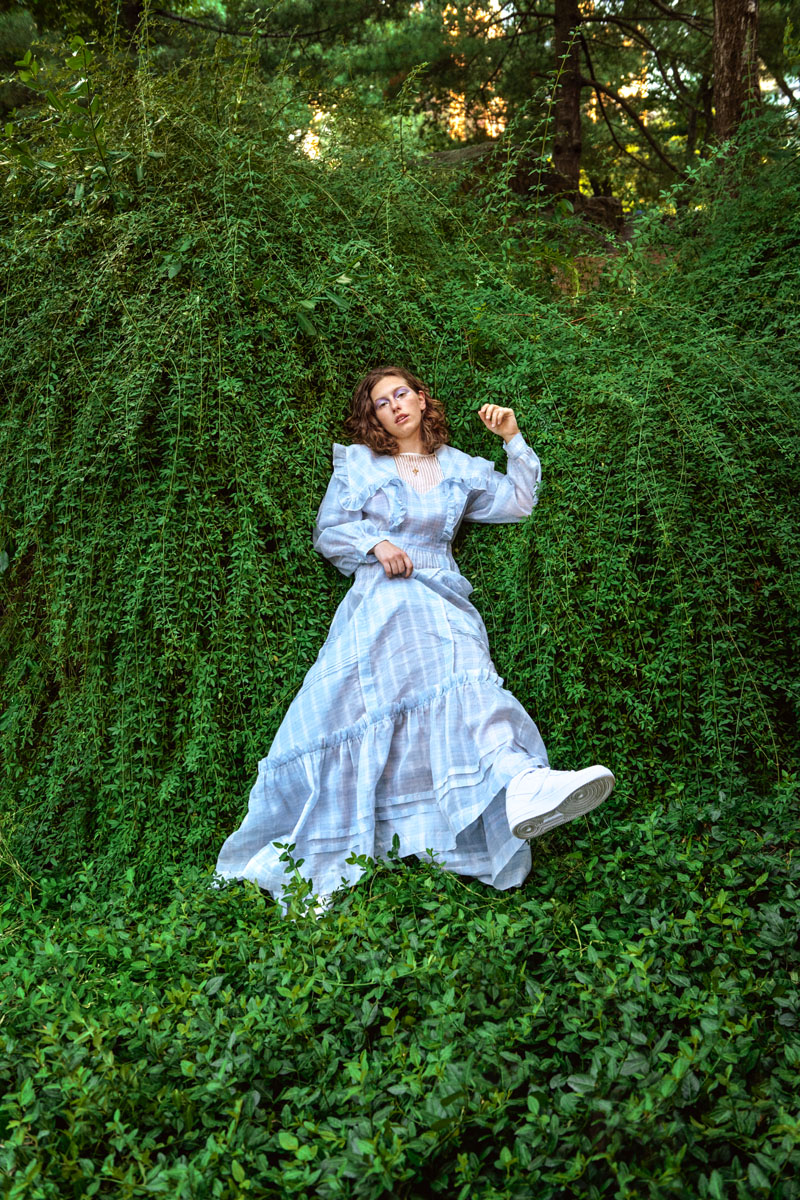
Opposite Page: Dress and Slip by Calvin Klein 205w39nyc. Sneakers by Nike
RONSON: You strike me as someone who doesn’t have a problem ending it.
PRINCESS: Yeah, I was the one who wanted the final word. There is definitely a behavioral pattern where I can take it to ten. I think that’s the New York side, too. Kids here are confrontational and strong-headed.
RONSON: Did being a Brooklyn kid and going to school in Manhattan put a chip on your shoulder? Do you feel like it gave you the ability to adapt and blend into anything?
PRINCESS: I definitely pretended to play the part for many years. Being from Brooklyn, it was like a little respite thinking that I would go home to a neighborhood the kids in my school were scared of. It also allowed me to isolate myself and work on new lyrics.
RONSON: Is there another moment in the history of New York that you ever wish you could time travel to?
PRINCESS: I definitely romanticize history, like being in the New York writers’ circle in the 1950s. But in reality, it would have probably been fucking horrible—to be gay and out then, trying to make a living in New York. I would love to have been in New York in the ’70s. I would want to see that type of debauchery.
RONSON: I remember when I first met Alicia Keys when she was maybe 18. She was wearing stonewashed jeans and Reeboks, and she was so awesome and charming. She had this New York charisma that I also felt when I met you.
PRINCESS: I think that being from New York is about being inundated with constant humilitation from the people walking down the street. Everything’s so close together. You’re constantly surrounded by weirdos. For me, it made me feel so old at a young age. I grew up feeling like I was in the wrong body, like I was an old soul trapped in private school. Going to the studio with my dad allowed me to feel ageless. I felt like I could create friendships and bonds with people who were older than me, and still bring something to the table. Without New York, I don’t know if I’d have had that.
———
Hair: Tamara McNaughton at Streeters.
Makeup: Fara Homidi at Frank Reps.
Choreographer: Luisa Opalesky
Production: Mary Clancey Pace
Post-Production: Two Three Two.
Digital Technician: Travis Drennen
Lighting Design: David Diesing
Fashion Assistant: Malaika Crawford
Production Assistants: Eric Jacobson, Luis Jaramillo, and Austin Kearns
Lighting Assistants: Jared Christiansen and Tim Mahoney



